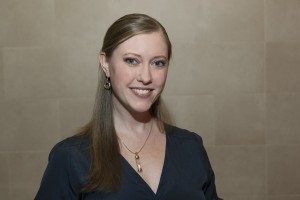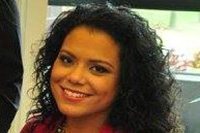 That Sarah Hess found a passion for bettering the lives of children wasn’t particularly new or surprising. After all, the Chicago native mentored the city’s foster children as their ballet instructor for years.
That Sarah Hess found a passion for bettering the lives of children wasn’t particularly new or surprising. After all, the Chicago native mentored the city’s foster children as their ballet instructor for years.
But through a series of legal internships she secured as a student at The John Marshall Law School, she found a new way to be a children’s advocate – and found herself listed among colleagues who study at Ivy League schools while doing it.
After graduating in May 2014, Hess will dedicate two years working to improve children’s health through a specially designed program that won her a prestigious 2014 Skadden Fellowship.
She will help establish a medical-legal partnership with the Chicago Lawyers’ Committee for Civil Rights Under Law, the public interest law consortium of Chicago’s key law firms. The project is “really about obstructing the cycle of poverty,” Hess said. She will provide legal services, be an advocate, look at policy issues and possibly work on new legislation or legislative changes.
Her inspiration for the project came when Hess worked as a 2012 legal extern at Business and Professional People for the Public Interest, focusing on early learning for residents 0-5 years old at Altgeld Gardens, a public housing project.
Through her internship, Hess researched programs that can give children relief from the stress of poverty. While the burden of poverty falls on the parent, children feel the weight of problems when, for example, they have no permanent address, a parent may be out of work or threatened with deportation, or there is violence in the home.
“Those kinds of issues took me to child well-being and took me into the realm of social sciences that are showing the effect of poverty on children,” Hess said. “The long-term health effects and the developmental effects of growing up in a low-income household, an extremely low-income household, and those that live below the poverty line, the kind of impact that has on a child’s health is really what became the basis for my project.”
John Marshall faculty and staff encouraged Hess’ dedication to public interest law as she applied for the Skadden Fellowship, a highly selective program underwritten by the law firm Skadden, Arps, Slate, Meagher & Flom LLP. The award allows recipients to design their own public interest project and provides them a two-year salary and partial law school debt repayment.
She became the first John Marshall student to receive the fellowship, which historically has largely been awarded to students from Ivy League law schools. She was stunned. She said she was excited and grateful to get the news, and believes her project will be a life-changing opportunity for her, and, she hopes for some needy Chicago children.
A former professional ballerina, Hess spent countless hours teaching some of those same needy children to pointe and pirouette.
As a faculty member of the School of Ballet Chicago, she taught children ages 3 through 14 ballet skills, through the Statewide Opportunities for Art and Recreation (SOAR) program. She saw how young children in Illinois’ foster care system were “far more grounded, they had better self-esteem and their academics improved because their focus improved” through the SOAR program. “This program gave these marginalized children an opportunity they otherwise rarely would get,” she said.
Those interactions with children gave Hess insights into what was possible, and how change could improve a child’s life.
“I was really interested in education law and improving education opportunities and education equity based on race,” Hess said, but she found that was too limiting when she began doing social science research on the effects of poverty on children. “The teacher can’t fix problems of the child outside school,” she said. “Children cannot learn unless they have a secure home environment.”
Attending John Marshall allowed her to pursue her enthusiasm for public service, a key point she made when applying for her fellowship.
“I chose John Marshall because I knew I wanted to pursue public interest law,” she told the Skadden selection committee. “What I got from John Marshall was an investment in my dedication to public interest law,” she said. “I felt like John Marshall was choosing me as much as I was choosing John Marshall, and it has been a wonderful experience.”

